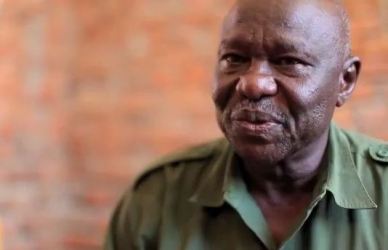Sudanese rebels call for “urgent” unilateral humanitarian assistance
June 1, 2012 (JUBA) – A top Sudanese rebel commander on Friday called on the international community to “unilaterally and urgently” deliver humanitarian aid to the civilian population fleeing a nearly conflict and depletion of food stocks in Sudan’s South Kordofan and Blue Nile states.

El-Hilu accused Khartoum under the leadership of President Omer Hassan al-Bashir of dishonouring many agreements including key provisions of the Comprehensive Peace Agreement (CPA), which ended Sudan’s civil war in 2005.
Failure to implement key aspects of the CPA was one of the reason El Hilu’s Sudan People’s Liberation Movement North (SPLM-N) took up arms against the government last year.
Other triggers of the conflict were a disputed election in which El-Hilu lost his bid to govern South Kordofan and Khartoum’s demand that all armed members of the SPLM-N disarm or move south of the new international border created by South Sudan’s secession from Sudan in July 2011.
Since the conflict began over 100,000 refugees have arrived in South Sudan and Ethiopia receiving assistance from humanitarian agencies but Khartoum has not allowed camps and aid to be delivered to SPLM-N held areas of South Kordofan and Blue Nile fearing that it would strengthen the SPLM-N.
“The international community should not accept any claim by the government in Khartoum. They are using relief as shield”, he said. The SPLM-N says it has accepted a tripartite proposal to allow aid into these areas by the Arab League, African Union and United Nations but the government of Sudan has prevaricated.
Sudanese government, for its part, demands that rebels should accept a ceasefire in the region before to allow humanitarian access to the SPLM-N held areas in South Kordofan and Blue Nile.
The tripartite plan aimed to dissipate initial fears expressed by Khartoum that rebels would also benefit from the international humanitarian assistance.
El-Hilu said the international community; particularly United Nations Security Council (UNSC) has a “moral obligation to unilaterally” deliver relief aid to the civilian population without seeking approval from in Khartoum.
“They will never accept do what the international community says. And even if they accept, they will do something else. What the government in Sudan says is not what it does,” says El-Hilu.
A UN humanitarian report of 25 May said that over the previous week “Sudanese refugees from Southern Kordofan’s Nuba Mountains arriving into Unity State continue to show signs of malnutrition.”
This is “likely” to be due to a “lack of food and available humanitarian assistance in their areas of origin” the report by the United Nations Office for the Coordination of Humanitarian Affairs said.
During May, Some 430 Sudanese arrived on daily basis into Yida refugee camp in South Sudan Unity State where there are 35,000 refugees.
This represents “a 47 percent increase over the arrival rate we saw in April. At this rate, the camp population will exceed 40,000 by the end of the month” the UNHCR spokesperson said last week.
From Blue Nile, 10,000 Sudanese refugees crossed into Upper Nile State between 18-24 May, bringing the number of refugees in the state to over 80,000 people. According to UNHCR, “the new arrivals were exhausted, having walked for several days after fleeing their villages in the wake of continued fighting”.
UNHCR further said that an estimated 20,000 Sudanese are in the Elfoj – a border area between Blue Nile and South Sudan’s Upper Nile State – having fled ongoing fighting between the Sudan Armed Forces and the SPLM-N.
UNHCR staff at Elfoj are reporting that as many as 40,000 more displaced people could be on their way to South Sudan.
El-Hilu, who is also the commander in chief of the SPLM-N forces, said his forces were committed to providing security to humanitarian agencies in areas under the control of the SPLM-N and commended efforts being exerted by relief organisations operating to assist refugees in South Sudan.
“The humanitarian agencies which are on the ground are trying their best. The UNHCR and the World Food Programme are currently distributing emergency food rations. Some organisations like MSF have started to provide basic health service to the people”, he said .
The UN Security Council in its resolution 2046 of 2 May demanded Sudan to allow international aid groups to work in the rebel held areas in Blue Nile and South Kordofan.
US Ambassador to the UN, Susan Rice after a UN Security Council meeting on 31 May, expressed her “dire concern” about the situation in the two southern Sudanese states. She further said the situation refugees who crossed the border into Yida “is absolutely alarming.”
However, Sudan’s Ambassador to the UN, Daffa-Alla Elhag Ali Osman, blamed Juba for the deterioration of the humanitarian situation saying the support it provides to the rebels is behind the escalation of violence there.
He demanded the South Sudanese government dissociate itself from the rebels “to enable the Sudanese government and the international community to channel humanitarian assistance to the needy people” in the areas affected by the conflict.
The influx of the refugees fleeing conflict was putting tremendous strains on limited resources in this remote area of South Sudan, UNHCR said on Friday. Doro camp in Upper Nile is running out of space, with more than 37,000 refugees already living there while Jammam is grappling with a lack of water despite continuing efforts to drill deeper wells.
UNHCR says it “is in the process of relocating 15,000 refugees from Jammam to Doro and Batil to ease congestion and the pressure on limited water supplies in Jammam.”
“The first rains and muddy roads are slowing down the movements. Some groups are moving on their own from the border to join their communities in Doro and Jammam camps,” UNHCR said.
The current influx brings the total number of Sudanese refugees in Upper Nile State to about 100,000. While Unity State is hosting another 38,000 refugees from Sudan’s South Kordofan State.
(ST)
